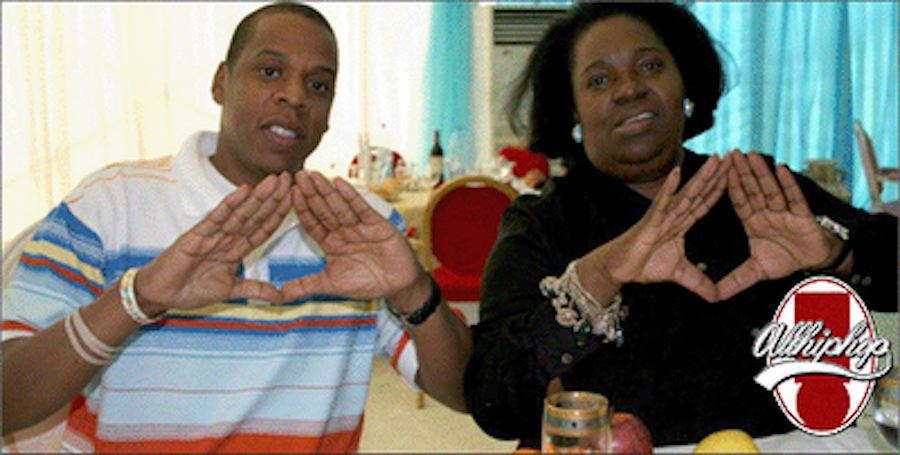Dictators and Pop Stars
A number of North American pop artists have lent their star power to African dictators.

Jay Z and Pascaline Bongo throwing up the Roc in Gabon.
Yesterday Canadian pop star Nelly Furtado tweeted that she had performed privately for Gaddafi’s family and had earned US$1 million, but was now feeling so bad that she would donate the money she earned to “an undisclosed charity.” Anyway, her sudden development of a consciousness, made us think about all those other American artists who have lent their star power to African dictators.
In the last week, mainstream media (and blogs) have reminded us that 50 Cent, Mariah Carey, Usher, and Beyoncé have also performed privately for Gaddafi’s family in the past. When reps for Carey, Usher, and Beyoncé were asked by Rolling Stone Magazine to comment on the shows, they either declined to comment or did not return phone calls.
South of the Sahara, Jay-Z has been photographed (above) representing Roc-A-Fella with Pascaline Bongo, daughter of the late Omar Bongo from Gabon. The latter ruled that country for 42 years while crushing any opposition and managing the country’s budget like it was his family’s bank account; The crimes of Omar Bongo’s regime included murder and torture of political opponents.
Pascaline Bongo served in various capacities in her father’s government. In 2009 her brother, Ali Ben, won an election marred by irregularities. Ali Ben appointed Pascaline as a senior presidential aide. The country has been the scene of protests the last few weeks.
Bongo’s daughter-in-law also rented a house in Los Angeles from Puff Daddy.
Separetly, rapper Eve spent a fair amount of time dating Teodoro Nguema Obiang, the son of Equitorial Guinea’s questionable leader. Like his father, Eve’s ex was/is also under suspicion of corruption. Then there’s Akon’s endorsement of Senegal’s unpopular president, Abdoulaye Wade.
We could go on and on citing links between dictators and pop stars. Who is today “Artists United Against Apartheid” that shamed musicians who played Sun City in South Africa? Let’s get Steven Van Zandt to rally again. Or just blog about it.



















